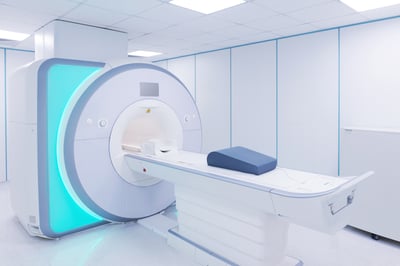FORCE's eXamining the Relevance of Articles for You (XRAY) program looks behind the headlines of cancer news to help you understand what the research means for you.
XRAY is a reliable source of hereditary cancer research-related news and information.
Learn more about the XRAY program
In portal: Breast Cancer, Categories Prevention
Relevance: Medium-High


Strength of Science: Medium-High


Research Timeline: Post Approval


Study : Body Mass Index (BMI) may affect how well aspirin use protects against colorectal and ovarian cancer
Relevance: Medium-High


Strength of Science: Medium-High


Research Timeline: Post Approval


Most relevant for: People concerned about their risk of colorectal or ovarian cancer.
This study looked at the impact of daily aspirin use on the risk for many types of cancers and whether this effect can be modified by risk factors such as obesity, smoking, physical inactivity or a family history of cancer. Daily aspirin use:
- lowered the risk for colorectal cancer, but this effect was lost as Body Mass Index (BMI) increased.
- lowered the risk of ovarian cancer risk among obese women.
- offered little or no protection against breast, endometrial or advanced prostate cancer.
(posted 3/19/21)
Este artículo está disponible en español.
Read More
Relevance: Medium-High


Strength of Science: Medium-High


Research Timeline: Human Research


Study : Breastfeeding may lower risk of ovarian cancer in women with BRCA mutations
Relevance: Medium-High


Strength of Science: Medium-High


Research Timeline: Human Research


Most relevant for: Women considering breastfeeding who have inherited BRCA mutations.
Data from a large-scale study suggests that breastfeeding may protect against ovarian cancer in women with inherited mutations in BRCA1 or BRCA2. (1/28/21)
Este artículo está disponible en español.
Read More
Relevance: High


Strength of Science: Medium-High


Research Timeline: Post Approval


Study : What is the risk for a new breast cancer diagnosis in the other breast for women with a BRCA1, BRCA2 or TP53 mutation?
Relevance: High


Strength of Science: Medium-High


Research Timeline: Post Approval


Most relevant for: Women diagnosed with breast cancer who have a mutation in BRCA1, BRCA2 or TP53
For women who have been diagnosed with breast cancer, knowing their risk of breast cancer in the other (contralateral) breast can help them make decisions about surgery and screening. This study shows that women with an inherited mutation in BRCA1, BRCA2 or TP53 have an increased risk for contralateral breast cancer. This risk is highest in women with a TP53 mutation. (6/6/20)
Read More
Study : Racial and ethnic differences in genetic testing among young breast cancer survivors
Most relevant for: Women diagnosed with breast cancer at age 50 or younger
Genetic testing is recommended for most women who are diagnosed with breast cancer at age 50 or younger. In this study of young women with breast cancer, while the rates of genetic testing did not differ, the rates of women testing positive for an inherited mutation associated with breast cancer did vary between racial and ethnic groups. (2/27/20)
Este artículo está disponible en español.
Read More
Relevance: Medium-High


Strength of Science: Medium-High


Research Timeline: Human Research


Study : Cancer risk associated with inherited mutations in Lynch syndrome genes
Relevance: Medium-High


Strength of Science: Medium-High


Research Timeline: Human Research


Most relevant for: People with Lynch syndrome mutations
Lynch syndrome is the most common inherited cause of cancer affecting about 1 in 300 people. People with Lynch syndrome have an increased risk of colorectal endometrial and other cancers. A large study followed people with mutations in the Lynch syndrome genes MLH1, MSH2, MSH6 and PMS2 to determine the risk of other types of cancer. (2/21/20)
Read More
Relevance: Medium-High


Strength of Science: Medium-Low


Study : Do hair dyes or straighteners increase breast cancer risk?
Relevance: Medium-High


Strength of Science: Medium-Low


Most relevant for: Young women who use hair dye or straighteners
Many women use products to color or straighten their hair. A large U.S. study linked the use of permanent hair dye and straighteners to increased breast cancer risk, particularly among black women. This XRAY reviews the limitations of this study and highlights the need for additional research before accepting these conclusions. (1/29/20)
Read More
Relevance: High


Strength of Science: High


Research Timeline: Post Approval


Study : Women who exercise have lower breast cancer risk whether or not they have a family history of breast cancer
Relevance: High


Strength of Science: High


Research Timeline: Post Approval


Most relevant for: Young, high risk women
The effect of physical activity on breast cancer risk was looked at in a study of over 15,000 women. The results suggest that exercise lowers breast cancer risk regardless of family history of breast cancer or menopausal status. (12/6/19)
Este artículo está disponible en español.
Read More
Relevance: Medium-Low


Research Timeline: Human Research


Personal Story : A “flu shot” against breast cancer? Not so fast
Relevance: Medium-Low


Research Timeline: Human Research


Most relevant for: Women diagnosed with Ductal Carcinoma In Situ (DCIS)
There have been multiple reports in the media of a Florida woman who had a "shot" to treat her DCIS with a promising outcome. This XRAY reviews the underlying story about this early breast cancer vaccine trial. (10/25/19)
Read More
Study : Does eating meat affect breast cancer risk?
Most relevant for: Women with a family history of breast cancer
Eating meat has been suggested to increase breast cancer risk. The recent Sister Study looked at meat type, cooking methods and breast cancer risk in a study of 42,012 women. (9/10/19)
Read More.jpg)
Relevance: High


Strength of Science: Medium-High


Research Timeline: Post Approval


Study : MRI or mammograms for detecting breast cancer in families with unknown genetic mutations?
Relevance: High


Strength of Science: Medium-High


Research Timeline: Post Approval


Most relevant for: People with a personal or family history of cancer where no mutation has been found
MRI and mammograms are used together to detect breast cancer in high-risk women who test positive for a BRCA or other gene mutation that increases the risk for breast cancer. For women with a family history of breast cancer but no known genetic mutation, increased screening is recommended. But what method is best? A recent clinical trial in the Netherlands compared MRI and mammography for this population. (8/15/19)
Read More